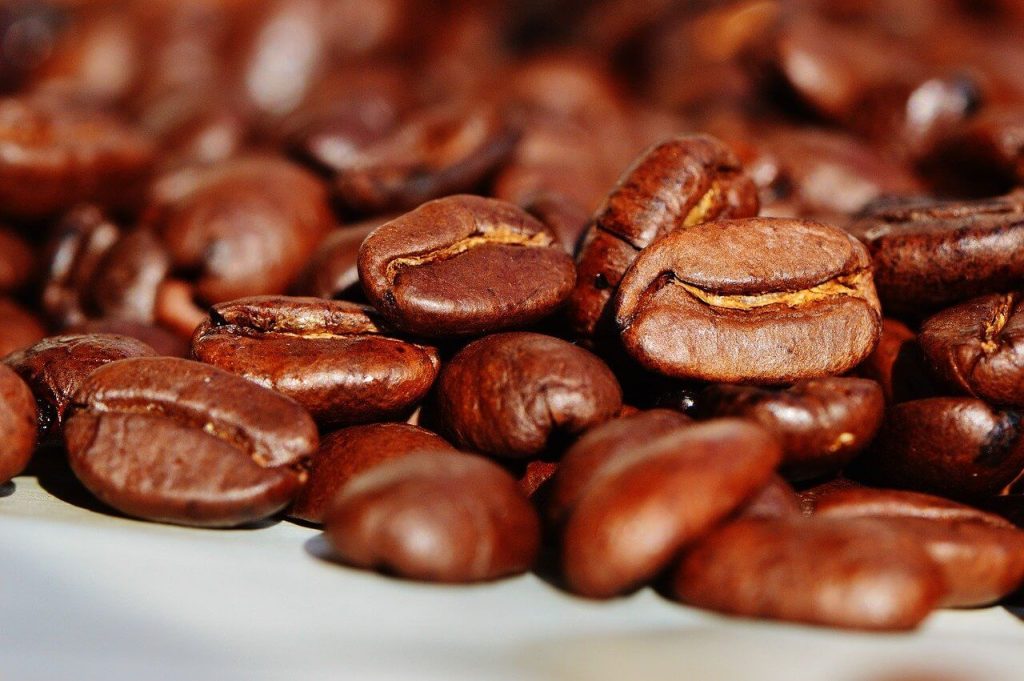There are a good few places in the world that produce really good coffee beans, and Ethiopia is one of them. If you want to make a really good cup of Joe, have a look into how to prepare Ethiopian coffee – you won’t be disappointed!
How To Roast Ethiopian Coffee Beans?

Ethiopian coffee is grown at high altitudes, which makes a harder than usual, dense coffee bean. They are also smaller than many other types of coffee bean, which can make it hard to get a good, uniform roast.
Roasting coffee beans is relatively simple – but there are one or two extra tips you will need to follow to get the perfect cup of Ethiopian coffee:
- The simplest way is to spread a layer of coffee beans on a baking tray, and place them in a pre heated oven for 15-20 minutes.
- Or, you can purchase a pre made coffee bean roaster, designed for the purpose – this is a great idea if you decided to get more into roasting your own beans.
- Keep an eye on the beans – they will turn from green to a peanut colour, then the skins will dry out and start to wrinkle and steam will be released.
- Next, you will hear an audible popping sound – this is called The First Crack. The sugars are starting to caramelise and the steam causes the bean to start breaking.
- If you continue to roast at this point, you will reach the Second Crack, but it is recommended that you stop the roast before this point to enjoy the best flavour.
- Remove the beans from the oven and place them into a metal colander. Blow on them to remove “chaff”.
- The beans will continue to roast for a while after you remove them from the oven, so allow them to cool completely before you handle them.
- Place your roasted beans in an air tight container until you are ready to use them – we bet that this won’t be long, once you have excitedly roasted your first batch of beans!
This great video shows you how to roast Ethiopian beans, the Ethiopian way:
What Is Ethiopian Coffee Called?
Ethiopians have a long history of, and a great love for, their coffee. In fact, one of their best known phrases is “Buna dabo naw” which means “Coffee is our bread.”
Ethiopia produces around 3% of the entire world’s coffee produce – this is quite a lot of coffee, when you think about it!
Ethiopia is where the coffee plant itself, Coffea Arabica, originates from. Therefore, most Ethiopian coffee is Arabica.
There are many different varieties of coffee in Ethiopia, many of which are named after the areas in which they were grown.
If you are buying imported coffee from Ethiopia however, chances are it will just be named “Ethiopian coffee” or “Ethiopian Heirloom”.
Heirloom is a blanket term for coffee grown under a specific banner, so you don’t have to worry too much about the different types or where they come from.
Your best bet is to shop around, try all the different varieties of Ethiopian coffee until you find the one that you like the best.
The great advantage of this is that you get to drink a lot of coffee, all in the name of scientific research!
What Makes Ethiopian Coffee So Good?
Ethiopian coffee is known as the pinnacle of good coffee, especially among coffee enthusiasts. You may have noticed a flavour difference, and here’s why:
- Ethiopian coffee has a bright flavour, almost fruity and with floral tones. This makes it a delicious cuppa.
- Ethiopian beans are higher in acidity, which is what contributes to this light, fruity taste.
- Ethiopia has the perfect environment for growing coffee, especially at high elevations in the regions of the Southern mountains.
- Most Ethiopian coffees are grown as naturally as possible because the conditions are already perfect, and no extra vegetation needs to be planted to protect the plants.
- Pesticides are not commonly used when growing this type of coffee, which adds to the clean, lively taste.
- The beans are processed naturally, without the addition of any type of chemical, as they have been for hundreds of years.
- Coffee in Ethiopia is a revered substance, and drinking it ceremonially takes up a large portion of a lot of people’s day. Any product that is this loved is always going to be amazing!
Is Ethiopian Coffee Healthy?
Although you should always drink coffee within reason, and not drink it to excess, there is a thought that coffee is actually good for you.
This is because coffee beans contain antioxidants, that help help limit to progression of free radicals in the body that can cause illness and disease.
It may be possible that drinking Ethiopian coffee can help protect against heart disease, although this is not an excuse to drink pints of your favourite coffee!
It is recommended that you drink no more than four cups of coffee in a day (provided your cup holds a standard amount of liquid).
This will give you all the benefits of the coffee without damaging your health, and means you can enjoy it without it affecting you adversely.
Because Ethiopian coffee is produced naturally, with no excess chemicals or harmful pesticides, it is automatically better for you than some other types.
These coffee beans are so suited to their environment that they need very little help to grow, meaning that they are as clean and healthy as they can be.
This is an interesting little article which goes into the science behind what good Ethiopian coffee can do for your body.
Final Words
Ethiopian coffee is a delicious and well respected type of coffee. Now you know the best ways to prepare it, you can prepare Ethiopian coffee for your friends and family – as well as enjoying it all by yourself!




